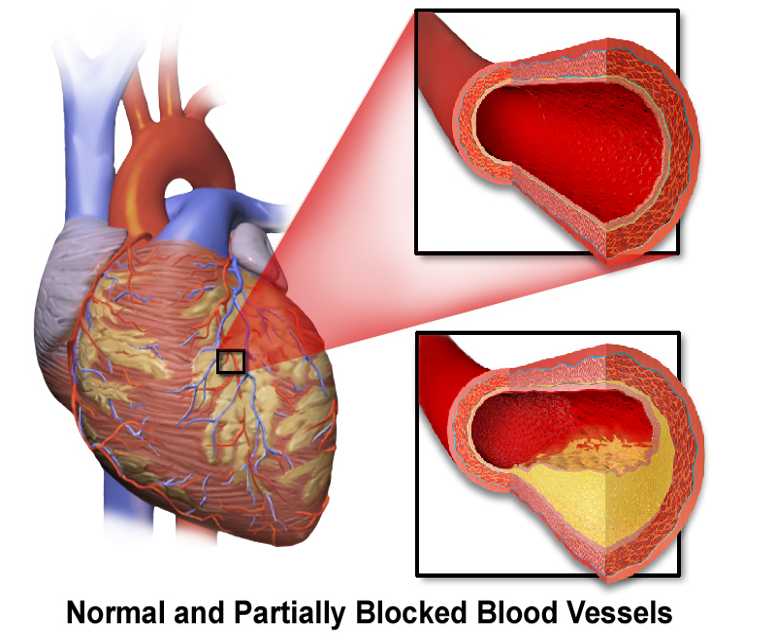By Zoe Terwilliger
Ischemia
Noun. / ih-SKEE-mee-uh/
What does it mean?
Ischemia is a decrease in blood supply to an organ or tissue. Because red blood cells are responsible for transporting oxygen throughout the body, less blood flow also means less oxygen being delivered to tissues. This lack of oxygen prevents the body’s cells from performing their necessary functions. Tissues and organs can become ischemic when the blood vessels that supply them become blocked by plaque that builds-up and restricts blood flow. This restriction can lead to things like heart attacks and strokes.
We know the mitochondria are the “powerhouses of the cell” because of their ability to utilize oxygen to make energy (ATP) for the cell. As a result of ischemia, the mitochondria do not get enough oxygen and are unable to provide the cell with energy. The lack of energy production leads to significant problems in cellular functions, and can lead to cell death.

Figure 1: This image shows the events that cause ischemic heart disease/coronary heart disease. Box A depicts a normal artery with no blockage and blood can freely flow through it. However, box B shows an artery with a plaque, usually consisting of cholesterol and fatty deposits, that makes the vessel smaller and movement of blood more difficult.
How do I use it in a sentence?
An ischemic event in a tissue or organ can cause serious damage to a tissue or even death.
Critical limb threatening ischemia (CLTI) is a disease characterized by tissue death because of blockage of a blood vessel that prevents blood and oxygen from getting to the tissues.
Ischemic heart disease, which is a blockage of one of the great blood vessels in the heart, is the leading cause of death in most countries.
Related Terms
Hypoxia
Normoxia
Anemia
Fields of Study in which this word is commonly used
- Physiology
- Biology
- Bioenergetics
- Pathology
- Biochemistry
